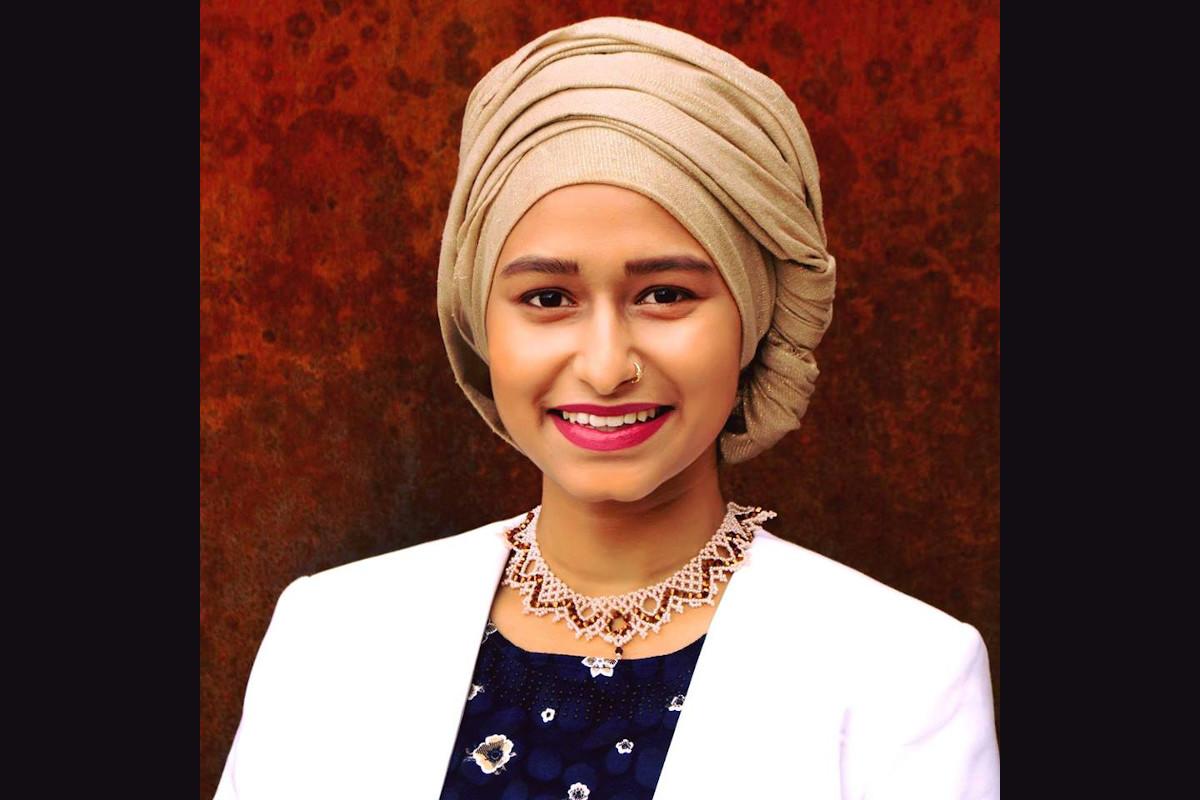Azrin Awal values learning through storytelling. She works to amplify the voices of those unheard, listening to people’s stories and becoming their ally. Because of this passion for advocacy, she chose to pursue a career in public health.
“Public health is about working with people to educate and empower others to take back their own lives and their own health,” explains Awal.
Part of wanting to empower others comes from her own experience. During her first years at UMD, Awal says she was the target of racism and microaggressions from students and professors on campus. As a cultural custom, Awal often wears a hijab, which a student once snatched from her head. On another occasion, Awal was called a terrorist while walking on campus.
After enduring such harassment, Awal became a dedicated advocate for social change.
Intervention and Allyship
UMD Health Educator and Wellness Coordinator Dori Decker helped Awal formulate a way to speak up about her experiences while also educating others and gaining valuable experience.
For a final project in UMD's public health program, Awal worked with Decker to create webinars focused on bystander intervention and allyship. The goal is to give people the tools to recognize harmful actions as well as the confidence to intervene on behalf of those who are marginalized in a way that positively affects the outcome.
When asked about what she wants her audience to take away from her webinars, Awal says “the anatomy of the apology.” She credits the work of Rania El Mugammar, a social justice educator, for helping her identify three key focus areas of an apology: consent, acknowledgment, and accountability.
“Understanding at minimum about what microaggressions are and how they show up, and knowing how to apologize, heal spaces, and take accountability is what’s really important,” says Awal.
Making Social Change
After graduating from UMD, Awal will continue working to establish an inclusive and equitable society that embraces all communities. She points to the importance of understanding one’s identity in this work.
“To make social change we must recognize all of our identities and the intersection of such,” she explains, acknowledging that she’s had to work on self-actualizing her identities as Muslim, Bengali, Asian-American, and queer woman, to clearly examine her experiences. Awal asserts that “when you can empower yourself you can empower others.”
According to Awal, there are three important steps in social justice work. “The first step is recognizing your privilege and seeing how your privileges either lift you or marginalize you. The second step is setting your intentions. And the third step is recognizing that you will mess up but it’s important to take accountability.”
Awal had two jobs lined up before she finished her coursework. In November 2020, she was hired as a consultant for a new organization in Duluth, called Outside the Box. The nonprofit organization provides activities and experiences in the fields of design, construction, and environmental sustainability for middle school youth experiencing systemic barriers to achievement.
Additionally, right before fall 2020 finals week, Awal got a call from Life House. She was hired as a youth advocate at the organization, which provides young people experiencing homelessness with a place of acceptance, safety, and belonging.
Looking to the future, Awal has many aspirations for life. She wants to obtain a public health master’s degree, specializing in community advocacy and creative healing. Her dream goal is to work under the CDC or World Health Organization, where she could travel to different communities around the world, spreading empowerment and encouraging individuals to “take back their health.”
Regardless of where life takes her, Awal says: “I will continue to learn and educate myself about how to be a positive ally and leave a positive footprint wherever I go.”
Jayna Brown is a UMD student who is majoring in Integrated Elementary and Special Education. She works with Lissa Maki as a communications assistant in the College of Education and Human Service Professions.
